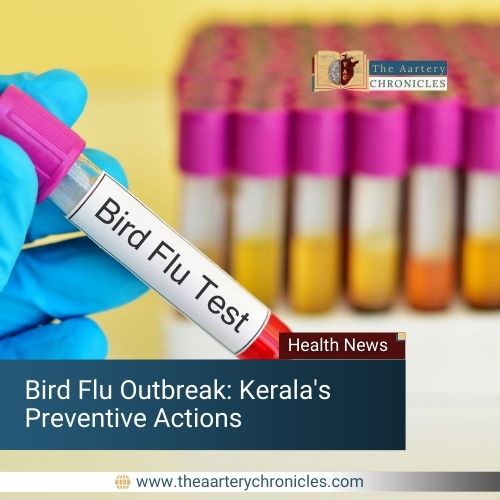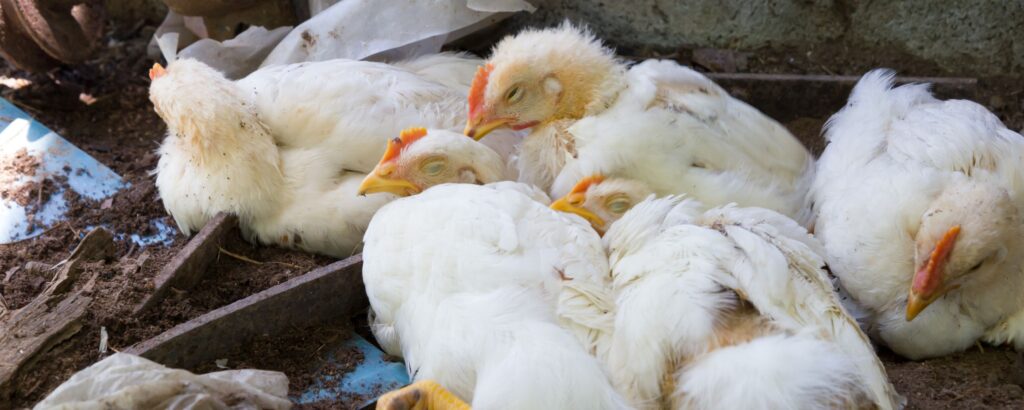

Bird Flu Outbreak: Kerala Minister Urges Officials to Activate Health Act Measures
Health Minister Veena George has instructed the health department’s director to enforce provisions outlined in the Kerala Public Health Act, 2023, in response to a bird flu outbreak in two wards of Alappuzha. She mandated the immediate assembly of panchayat-level committees in all affected areas. Surveillance efforts have been expanded to encompass neighboring panchayats and municipalities, with district-level monitoring and regular updates disseminated at the state level.
Furthermore, Minister George underscored the necessity of bolstering ‘One Health’ committees across all districts. While affirming that no human cases of bird flu have been reported in the state, she emphasized the importance of preventive measures. The health department remains vigilant, monitoring for symptoms like fever in impacted regions. Residents experiencing respiratory issues are advised to promptly seek medical advice in accordance with guidelines issued by the health department.
What is Bird Flu?
Bird flu is a viral infection caused by the strains of Avian influenza virus A (including H5N1, H7N9, H9N2), primarily impacts birds but poses a potential risk to humans as well.
Effect of Bird flu in humans
Human infections are extremely rare, but when contracted, persons infected with H5N1 viruses typically suffer severe sickness with a high mortality rate.
Mode of Transmission
- Breathing in virus-containing droplets or dust by intimate contact with infected birds [bird faeces, nasal, mouth, or ocular secretions].
- Contacting virus-contaminated surfaces [feathers, droppings] and then touching your mouth, nose, or eyes
- Consumption of undercooked eggs or meat.
- Human-to-human transmission is rare, yet several examples have been discovered.
Who faces potential risk?
- Employees in the poultry industry
- Individuals involved in slaughtering, plucking, and processing infected poultry for human consumption
- Travelers to regions experiencing outbreaks
- Close contacts of infected individuals within households

Symptoms of Bird flu
Symptoms often arise 2-7 days after exposure. Bird flu can cause flu-like symptoms ranging from mild to severe such as
- Fever
- Cough
- Muscle or body aches
- Fatigue
- Headaches
- Runny nose
- Sore throat
- Eye infection /Conjunctivitis
- Difficulty breathing
- Some individuals experience gastrointestinal symptoms, including nausea, vomiting, or diarrhea (in rare cases).
The condition can quickly worsen from a simple infection to a serious disease with life-threatening consequences including pneumonia, acute respiratory distress syndrome, shock, organ failure, and even death. Pregnant women, the elderly [65 years], and persons with a weak immune system are more at risk for serious disease.
Diagnosis of Bird Flu
- Clinical assessment along with consideration of exposure history
- Testing of respiratory secretions using RT-PCR test
Treatment of Bird Flu
It includes isolating the patient, providing supportive care, and administering antiviral medications such as oseltamivir, peramivir, and zanamivir. Antiviral medications should be used within two days after the onset of symptoms to reduce illness severity and complications.
Measures To Prevent Bird Flu
- Avoid visits to impacted regions, bird markets, or close contact with migrating birds.
- Avoid eating raw or undercooked chicken items.
- Wash your hands with soap, sterilize them with alcohol, and dry them.
- Maintain respiratory hygiene by wearing a mask and keeping hands and fingers away from the eyes, nose, and mouth.
- Stay away from sick persons and the stuff they use.
- Report the death of a bird in your region to the appropriate authorities. Do not touch the corpse with bare hands.
- The virus is destroyed at temperatures over 74℃, limiting the risk of transmission via cooked eggs and poultry meat.
- If you do not feel well, stay at home.
Fact: The virus is effectively neutralized at temperatures exceeding 74°C, ensuring that properly cooked eggs and poultry meat pose no risk of transmission.
If you get a fever, cough, and body pains and have recently visited the afflicted area, live bird market, or farms. Please contact your doctor immediately for proper guidance.
Source: Inputs from various media Sources

Priya Bairagi
- Medicine and Diseases
- Nutrition and Diet
















